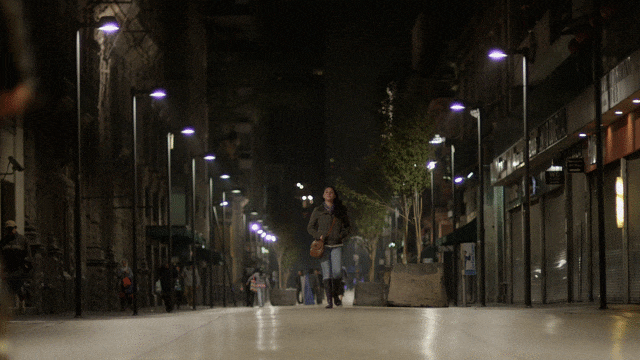
Sponsors
The awards will be sponsored by Facebook and Netflix.
Low light scenes often come with acquisition noise, which not only disturbs the viewers, but it also makes video compression challenging. These types of videos are often encountered in cinema as a result of an artistic perspective or the nature of a scene. Other examples include shots of wildlife (e.g. Mobula rays at night in Blue Planet II), concerts and shows, surveillance camera footage and more. Inspired by all the above, we are organising a challenge on encoding low-light captured videos. This challenge intends to identify technology that improves the perceptual quality of compressed low-light videos beyond the current state of the art performance of the most recent coding standards, such as HEVC, AV1, VP9, VVC, etc. Moreover, this will offer a good opportunity for both experts in the fields of video coding and image enhancement to address this problem. A series of subjective tests will be part of the evaluation, the results of which can be used in a study of the tradeoff between artistic direction and the viewers’ preferences, such as mystery movies and some investigation scenes in the film.
Participants will be requested to deliver bitstreams with pre-defined maximum target rates for a given set of sequences, a short report describing their contribution and a software executable for running the proposed methodology and then can reconstruct the decoded videos by the given timeline. Participants are also encouraged to submit a paper for publication in the proceedings, and the best performers shall be prepared to present a summary of the underlying technology during the ICME session. The organisers will cross-validate and perform subjective tests to rank participant contributions.
Please, find here:
- the call for participation ICME2020_CallForParticipants.
- the instructions for the registered participants ICME2020_GrandChallenge_Instructions.
Important Dates:
-
- Expression of interest to participate in the Challenge: 29/11/2019 10/12/2019
- Availability of test sequences for participants: 01/12/2019 upon registration
- Availability of anchor bitstreams and software package:
15/12/2019 - Submission of encoded material:
13/03/202027/03/2020 - Submission of Grand Challenge Papers:
13/03/202027/03/2020
Host: The challenge will be organised by Dr. Nantheera Anantrasirichai, Dr. Paul Hill, Dr. Angeliki Katsenou, Ms Alexandra Malyugina, and Dr. Fan Zhang, Visual Information Lab, University of Bristol, UK.
Contact: alex.malyugina@bristol.ac.uk

